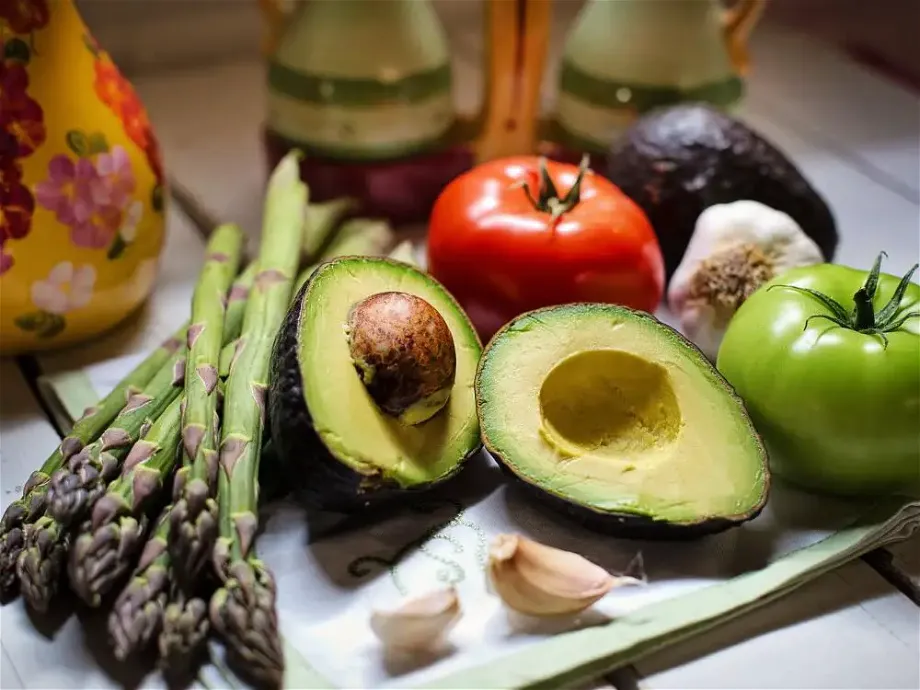Whole Natural Plant Foods, we believe, comprise the healthiest diet style there is.
And the reason why is quite simple really:
There are no processed foods in nature and humans are evolutionally and anatomically plant-eaters, not omnivores or carnivores.
We have discussed the why already but you probably wonder about the how.
How do whole plants keep us healthy?
How do they fight diseases, reduce inflammation, improve vitality, give us strength…
Here is the main reason how eating whole plants makes you truly healthy.
Post Contents
Micronutrients are only abundant in plants
We all know about protein, fats, and carbs. They are in virtually any discussion related to nutrition.
And for a good reason – these are the macronutrients or the only three sources of energy for all life.
Since without energy we cannot exist, it is logical for macronutrients to be in the spotlight so much.
In that sense, macronutrients are for humans like gasoline is for the car.
You cannot maintain a car with only gasoline. You need to change the oil, change the brakes, filters and so on and on.
Yes, protein and fats have important maintenance functions as well but no protein can become muscle without help.
If the protein is new brakes for your car, you need somebody to remove the old ones, clean the disks, put new ones and put the wheels back on. And if you ask a mechanic about, there is so much more to be done as well.
Micronutrients help you maintain and create a healthy body.
Antioxidants
Probably the most famous micronutrients are antioxidants. Think vitamin C or vitamin E.
Antioxidants are basically the cleaning and detox crew of your body.
For every moment that you are alive, in your body occur millions of chemical reactions. Like during the metabolic processes when you extract energy from food.
Those reactions ultimately create free radicals or oxygen molecules that are split and have an unstable electron.
Because they are unstable, free radicals create damage to your cells and can destroy them.
To restore balance to the system, your body relies on antioxidants to basically balance these unbalanced oxygen atoms.
Antioxidants come in many shapes and forms but hardly from animal products or processed foods.
Compared to whole plant foods, meat, dairy, and eggs have virtually no antioxidant capacity.
And processed foods such as candy or white bread, well, in our stupidity, we have removed most of the antioxidants that were in the food once.
Minerals
It would be foolish to think that we are all made from protein or fat.
Our bodies need minerals such as calcium, iron or salt to build our tissues and take part in our metabolism.
And, yes, in animal foods do contain these minerals.
However, our bodies cannot regulate the intake of minerals from meat, dairy, and eggs.
Take iron, for example, there is animal (heme) iron and plant (non-heme) iron.
It is said that animal iron is better absorbed than plant iron because when we eat heme iron, most of it is absorbed in our blood.
Recent research, though, has uncovered that our guts cannot stop animal food iron from it being absorbed.
And iron is a pro-oxidant!
That means that too much iron can create free radicals that will damage our cells.
So what happens is that when we eat plants, our bodies can absorb as much iron as we need but not so much so that creates too many free radicals that we cannot remove swiftly.
In essence, our guts are way better at regulating the intake of minerals from plants than from animal products.
So, when you hear claims how iron, magnesium, calcium or another mineral is better absorbed from meat or dairy, it does not mean that we actually need that mineral, it means that it goes into our blood no matter what.
Phytonutrients
Phyto comes from the Greek word for plants.
Only plants have plant nutrients, it’s that simple.
And phytonutrients are a broad category of chemicals that help our bodies function well, stay healthy and fight disease.
Take sulforaphane, found in cabbage family of vegetables (like broccoli, arugula, bok choy, kale). Researchers have found it to stimulate the immune system and help it effectively find and irradicate cancer cells.
Similarly, the organosulfur compounds found in the onion family (garlic, onions, scallions) can help reduce inflammation in the body and deter cancer. Lignans in flax seeds also are found to reduce cancer risk by reducing estrogen activity in the body.
Phytoestrogens are a group of compounds that occupy our estrogen receptors and thus fewer estrogens are actually active in the body. High estrogen activity generally predicts a higher risk of disease.
These are just a few examples, there are more than 60,000 known phytochemicals and probably many more are yet to be discovered.
All-in-all, phytonutrients are essential for great health and longevity and you can only find them in plants.
Plants help us maintain a healthy gut
Today probiotics are sold everywhere.
And for a good reason, the bacteria in our intestines determine how well we absorb nutrition from our food, the health of our immune system, even how we think.
Probiotics are a good way for us to ensure that we have a healthy gut microbiome.
However, our gut microbes can change even in a matter of hours, depending on what we eat.
Because what we eat is what they eat.
If we eat the proper foods, the good gut bacteria will multiply and the bad ones will starve to death.
And plant foods foster the growth of good bacteria.
Remember lignans. When we eat flax seeds, we eat only lignan precursors that are ultimately converted to lignans by the good bacteria in the gut.
Meat, on the other hand, is acidic and fosters the growth of bad bacteria. And when that bad bacteria consume the meat, it produces TMAO, a chemical that then enters our bloodstream.
Unlike lignans, TMAO does not fight cancer but severely injures our blood vessels causing heart disease, the number one killer of people in the Western world.
Dairy is full of hormones and, more importantly, casein proteins. They injure the walls of the intestine, leading to the ‘leaky gut’ condition and subsequently autoimmune problems.
So, it appears that plant foods feed the good bacteria which helps us digest our food better and benefit from nutrients such as lignans.
Animal product consumption, on the other hand, damages our guts and subsequently leads to heart and autoimmune conditions.
Plant foods provide a nutritional balance
We talked about isolated nutrients and how they affect the body.
That is only a part of the whole picture, though.
Protein is vital for human health but eating a lot of protein can increase the acidity in the body and overwork the kidneys. That also means calcium is extracted from the bones and a cascade of negative reactions can occur with overconsumption of protein.
It is the same with every nutrient that is studied in isolation or that we consume large doses of.
Remember the iron example from above?
It is the same story. Getting too much iron causes excessive oxidation and free radical formation, eating too little means we cannot create hemoglobin in our blood.
How do you know how much protein or iron the body needs?
Scientists have proposed doses that seem to contradict each other.
The truth is, we don’t know.
We must leave the body to determine how much of any nutrient it needs.
What we do know, though, is that our guts can regulate how much of any nutrient is absorbed when it comes from plant foods. Eating plants is the way to make sure that we get exactly the nutrients we need and throw away what we do not.



